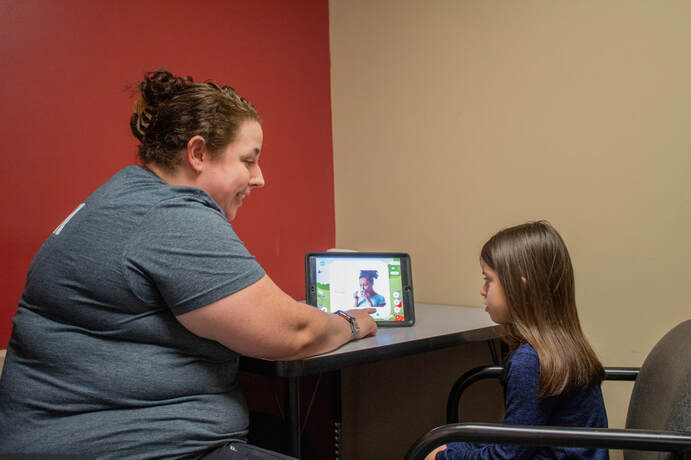About Speech-Language Pathology

Speech-language pathologists (SLPs) help those with speech, language, social communication, swallowing, and cognitive-communication deficits. Our therapists are here to evaluate, diagnose, and treat patients on an individualized basis to help them achieve their goals and maximize independence and quality of life.
Common Areas Addressed by Speech-Language Pathologists:
Developmental Delay
Articulation Disorders
Apraxia
Autism
Dementia
Parkinson's Disease
Dysphagia
Aphasia
CVA
TBI
Our speech-language pathologists take a patient-focused approach to therapy with functional interventions to help patients in their day-to-day lives. At Clarion Rehabilitation Services, Inc. we strive to provide the quality care that our community deserves.
We treat the following individuals and disorders.
Adults
Cognition (memory, attention, problem-solving)
Cognition (memory, attention, problem-solving)
- Difficulty managing medications, paying bills, completing other daily tasks
- Difficulty remembering new information
- Confusion / disorientation
- Getting lost in familiar places
- Trouble swallowing food, drinks, pills
- Coughing/throat clearing while eating and drinking
- Food or pills feeling "stuck"
- Hoarse, weak or raspy voice
- Difficulty projecting the voice or asked to repeat things often
- Running out of air while speaking
- Difficulty expressing wants and needs clearly
- Increased frustration when trying to communicate
- Difficulty finding the right words and getting them out correctly.
Pediatrics
Speech and Language Delays
Speech and Language Delays
- Delays in speech or language development
- Decreased speech intelligibility
- Difficulty with specific sounds
- Hoarse, weak or raspy voice
- Difficulty projecting the voice or getting asked to repeat things often
- Running out of air when speaking
- Difficulty with speech rate, smoothness and effort
- Repetitions of single sounds at beginning of words, syllables and monosyllabic words
- Sound prolongations
- Sound blocks
- Difficulty preparing food and liquid for intake
- Trouble sucking, chewing or swallowing
- Refusing age-appropriate or developmentally-appropriate foods or liquids
- Accepting a restricted variety or quantity of foods or liquids
- Experiencing less than optimal growth
